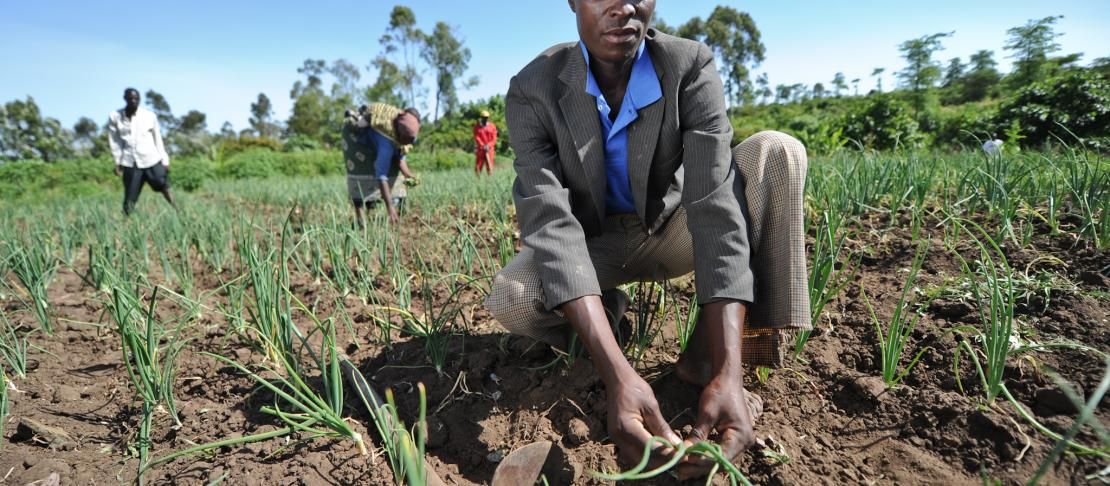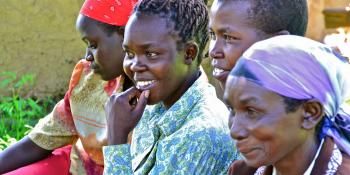How can young African agripreneurs survive COVID-19 and the climate crisis?

This blog was originally published on the Swedish International Agriculture Network Initiative (SIANI) website. SIANI supports and promotes multisector dialogue and action on sustainable agriculture for food security, improving nutrition and hunger eradication.
The COVID-19 pandemic is disrupting agricultural value chains in Africa by threatening food, nutrition and security, as well as the livelihoods of farming communities. In addition, climate-related catastrophes, such as floods and the desert locusts, have contributed to the challenges faced by the most vulnerable populations, especially the rural youth.
The CGIAR Research Program on Climate Change, Agriculture and Food Security (CCAFS), 2SCALE, the Food and Agriculture Organization of the United Nations (FAO), AgriProFocus, the Climate Smart Agriculture Youth Network (CSAYN), SIANI and Practical Action held an online discussion followed by a webinar to explore and discuss how young people working in agribusiness are coping with the effects of the pandemic in the context of a changing climate. The insights from this collaboration highlight struggles, coping innovations and policy response options.
Webinar: Youth in Agribusiness - Coping with COVID-19 in the context of a Changing Climate from SIANI on Vimeo.
Whilst development partners and governments have been encouraging the youth to embrace agriculture as a source of income, it is worth noting that young rural people, especially young women, are among the most vulnerable groups and are at high risk of disproportionately suffering the pandemic and its aftermath. The youth already face higher rates of unemployment and underemployment, and are overrepresented in the informal economy where they are 40% more likely to be in casual work arrangements than those above 35 years old. Most earn their income on a daily or weekly basis and have little or no access to health insurance or social security.
At the same time, it is increasingly observed that some of the policy responses and measures put in place by governments to halt the spread of the virus are exacerbating the existing challenges that rural youth face in engaging in agriculture and agribusiness. For example, several formal and informal businesses, which employ many young people have been forced to close or downscale significantly as a result of lockdowns and movement restrictions at national and local levels.
Innovative youth rising
However, all is not lost: Many young people are implementing innovative ideas to address the current food availability crisis using various digital platforms, as highlighted in an online discussion hosted on the Climate and Agriculture Network for Africa (CANA) platform from May 20, 2020. Some of the interesting insights that came out from these discussions include:
“I have seen some interesting innovations with an example of youth activities in the suburb where I stay, who told me his story of how he has lost his job and to survive he has acquired an old bicycle and loads it with fruits and vegetables. He uses a loudspeaker to call out to whoever needs the items he has as he rides through the neighborhood,” commented Stella Naggujja, (CANA) in the online discussion.
During the webinar held on June 18, 2020, Ian Mutwiri of Homerange Poultry shared how his team has developed online manuals on poultry farming, which are freely available online, and how his team is using social media platforms, such as Youtube and Facebook, to conduct training sessions targeting the youth. Antony Malovi (CSAYN) has developed a solar drier using locally available materials given that he could not import any as a result of COVID-19 lockdown.
Marzia Pafumi, Youth Engagement Specialist (FAO), argued that youth agripreneurs responded to COVID-19 very fast, trying to adapt their business models and thinking outside the box to find new opportunities. She mentioned that as a result of the pandemic, there has been an accelerated move to online marketing and sales, such as orders on social media, home delivery and an increase in mobile payments. Agripreneurs also started to work more with adding value to primary products. Many of them started to use locally sourced agricultural inputs.
Mr Jacob Ochieng (Practical Action) highlighted the unprecedented impact COVID-19 is having on the economy worldwide. Practical Action is supporting agribusinesses and youth so they can remain safe by providing access and distributing information on the best practices about stopping the spread of the virus. Ochieng also underscored the importance of keeping essential agricultural services running. He mentioned that marketing and networking for agripreneurs is not possible during a lock-down, but digital platforms and social media that will help to coordinate are key when people can not physically meet to negotiate, transact or receive training. In conclusion, he mentioned that innovations and the combined learnings about climate change and COVID-19 should be utilized in activities related to resilience for youth in agribusiness.
Read the full blog on the SIANI website.


